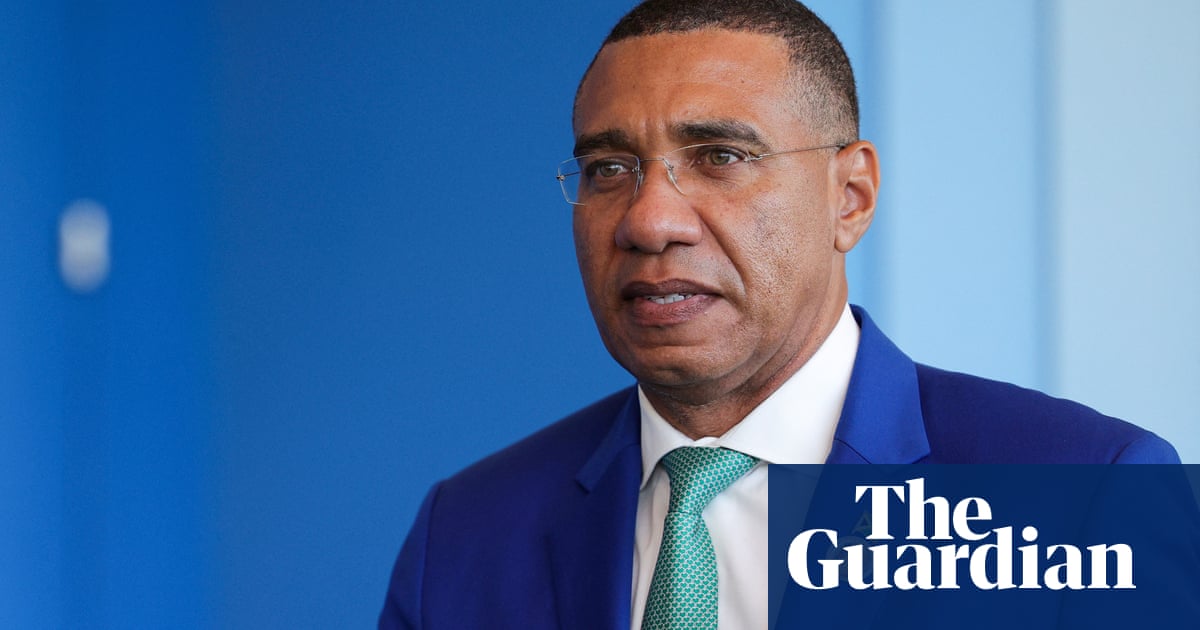
Jamaica’s prime minister has issued a 14-day state of emergency in the country’s southern Clarendon parish amid fears of further violence after two shootings on Sunday left eight dead and nine wounded.
Seven people were killed when gunmen fired indiscriminately at a birthday party in Cherry Tree Lane, Clarendon; the eighth victim was killed in a second shooting.
A seven-year-old boy is among those killed, and police have confirmed that a one-year-old was injured.
The government did not immediately say what the emergency measures would include, but these can typically involve nightly curfews, longer detention periods without formal charges, and giving police the authority to search properties without warrants.
“This is an opportunity for the government to mobilise fully to have a very serious focus on gangs,” the prime minister, Andrew Holness, told a press conference on Wednesday. “We cannot allow murders to be normalised in our country.”
Holness added that he hoped the measure would prevent reprisal killings, saying intelligence had warned there was a “very high probability” of retaliation attempts.
Acting commissioner of police Fitz Bailey said the government’s response had been “swift and impactful”, with five already arrested and an illegal firearm seized.
The minister of national security, Dr Horace Chang, attributed the recent killings to an escalating turf war between gangs and said a similar state of emergency in the parish in November 2023 resulted in a 50% reduction in shootings.
On Monday, the prime minister promised that the authorities would “deal with the gangs once and for all”.
Describing the incident as organised crime and “an act of terror”, he pledged to “leave no stone unturned” and to work with partners “to get those who are overseas, who are facilitating, directing and funding the criminal operations” in Jamaica.
Last year, a study by Insight Crime ranked Jamaica the second-deadliest country in the Latin American and Caribbean region, with 60.9 homicides per 100,000 people, second only to the small island state of St Kitts and Nevis.
Holness noted that while the number of gangs estimated to be active in the country had shrunk from 400 to 185 in five years, the figures remained “very high”.
At a regional level, the Caribbean Community (Caricom) has expressed concern about the alarming epidemic of violence and crime in the region. Country leaders have agreed to a range of measures to clamp down on rising gun violence, including stronger law enforcement and stopping the imports of illegal firearms.
About 87% of guns traced in the Caribbean come from the United States, according to US government data.
Source: theguardian.com


















